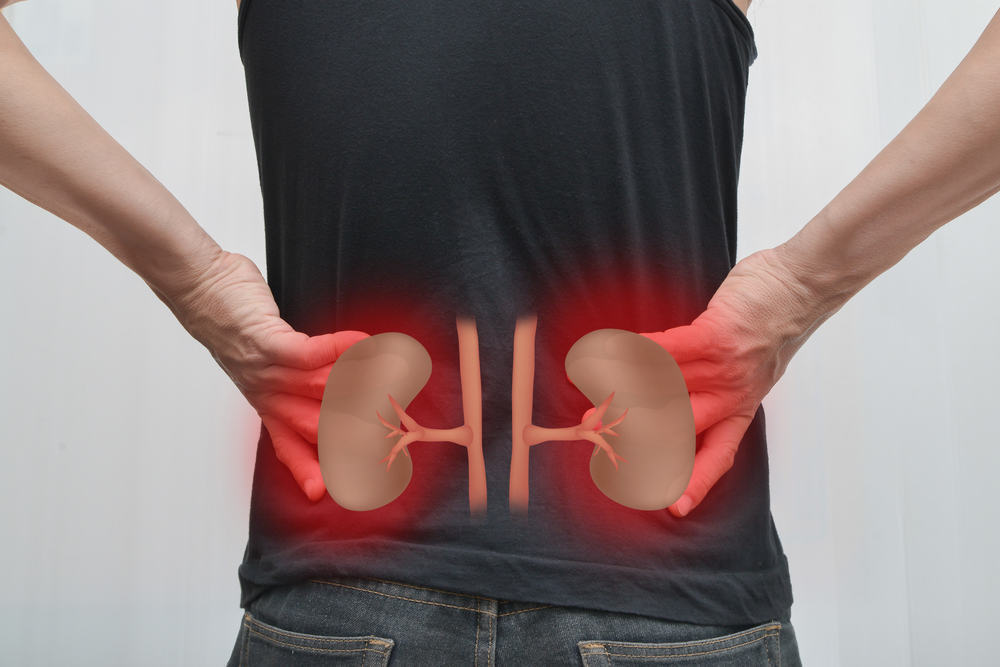Contents:
- Medical Video: What Kidney Donors Need to Know: Before, During and After Donation | Q&A with Dr. Fawaz Al Ammary
- Medical evaluation at the transplant center
Medical Video: What Kidney Donors Need to Know: Before, During and After Donation | Q&A with Dr. Fawaz Al Ammary
The transplant process begins when you learn that your kidney has failed and you must start considering your treatment options. Whether a transplant is an option, this will depend on your situation. Transplantation is not for everyone. Your doctor may tell you that you have a condition that will make the transplant dangerous or may not work.
Medical evaluation at the transplant center
If your doctor sees transplantation as an option, the next step is a comprehensive health evaluation at the transplant hospital. Pre-transplant evaluation may require several hospital visits for several weeks or even months. You need to take blood and do an x-ray. You will be tested for blood type and other matching factors that determine whether your body will receive the available kidneys.
The medical team wants to make sure you are healthy enough to do the surgery.
Significant cancer, serious infections, or cardiovascular disease will make transplants less likely to succeed. In addition, the medical team wants to ensure that you can understand and follow the schedule for taking drugs.
If a family member or friend wants to donate a kidney, it will need to be evaluated for general health and to see if the kidney is suitable or not.
Placement on the waiting list (waiting list)
If a medical evaluation shows that you are a good candidate for a transplant but you do not have a family member or friend who can donate a kidney, you will be put on a transplant list waiting list to receive a kidney from a deceased donor.
Everyone who waits for the donor organ to die is registered with Organ Procurement and Tissue Transplantation / Organ Procurement and Transplantation Network (OPTN), which maintains a centralized computer network that connects all regional organ collection organizations (known as organ procurement organizations, or OPOs) and transplant centers. Each transplant center may need a separate medical evaluation, even if the patient is registered at another center.
Observers of the OPTN operation worry that people in certain areas of a country must wait longer than others because the allocation policy for some organs gives preference to patients in the donor area. However, kidney administration is given based on its suitability regardless of geographic area. The key to making waiting time shorter is to increase the number of organs donated.
Waiting period
How long you have to wait depends on many things, but mainly depends on the level of compatibility between you and the donor. Some people wait several years to find a suitable donor, while others get a match within a few months. When you are on a waiting list, let the transplant center change in your health. Also, let the transplant center know if you move or change the telephone number. The center needs to contact you immediately when a kidney is available.
OPOs are responsible for identifying potential organs for transplantation and coordinating with national networks. Initial compatibility is based on two factors:
- Blood group. Your blood type (A, B, AB, or O) must be in accordance with the donor blood type.
- HLA factor. HLA stands forhuman leukocyte antigen, a genetic marker located on the surface of your white blood cells. You inherited three sets of antigens from your mother and three from your father. The higher number of antigens increases the likelihood that your kidney will last for a long time.If you are selected on the basis of the first two factors, the third stage is evaluation:
- Antibody. Your immune system can produce antibodies that act specifically against something in the donor tissue. To see if this happens, a small sample of your blood will be mixed with a small sample of donor blood in a tube. If no reaction occurs, you can receive a kidney transplant. Your transplant team might use negative terms cross-match to describe the lack of reaction.
Transplant surgery
If you have a living donor, you will schedule an operation at the start. You and your donor will be operated on at the same time, usually in a side room. One team of surgeons will perform a nephrectomy - that is, removal of the kidney from the donor - while the other prepares the recipient for kidney placement. If you are on the waiting list for a donor kidney to die, you should be ready to rush to the hospital as soon as the kidney is available. After that, you will give a blood sample to test cross-match antibody. If you have cross-match negative, it means that your antibodies don't react and the transplant can continue.
You will be given general anesthesia to make you unconscious during surgery, which usually takes 3 or 4 hours. The surgeon will make a small wound in the lower part of the stomach. Arteries and veins from the new kidney will attach to your arteries and veins. The ureter from the new kidney will connect to your bladder.
Often, the new kidney will start making urine immediately after the blood starts flowing through the kidneys, but sometimes it takes several weeks before starting work.
Recovery from surgery
After a major surgery, you may feel sick and dizzy when you wake up. However, many transplant recipients report feeling much better immediately after surgery. Even if you wake up feeling very good, you need to stay in the hospital for about one week for the recovery process, and longer if you have complications.












